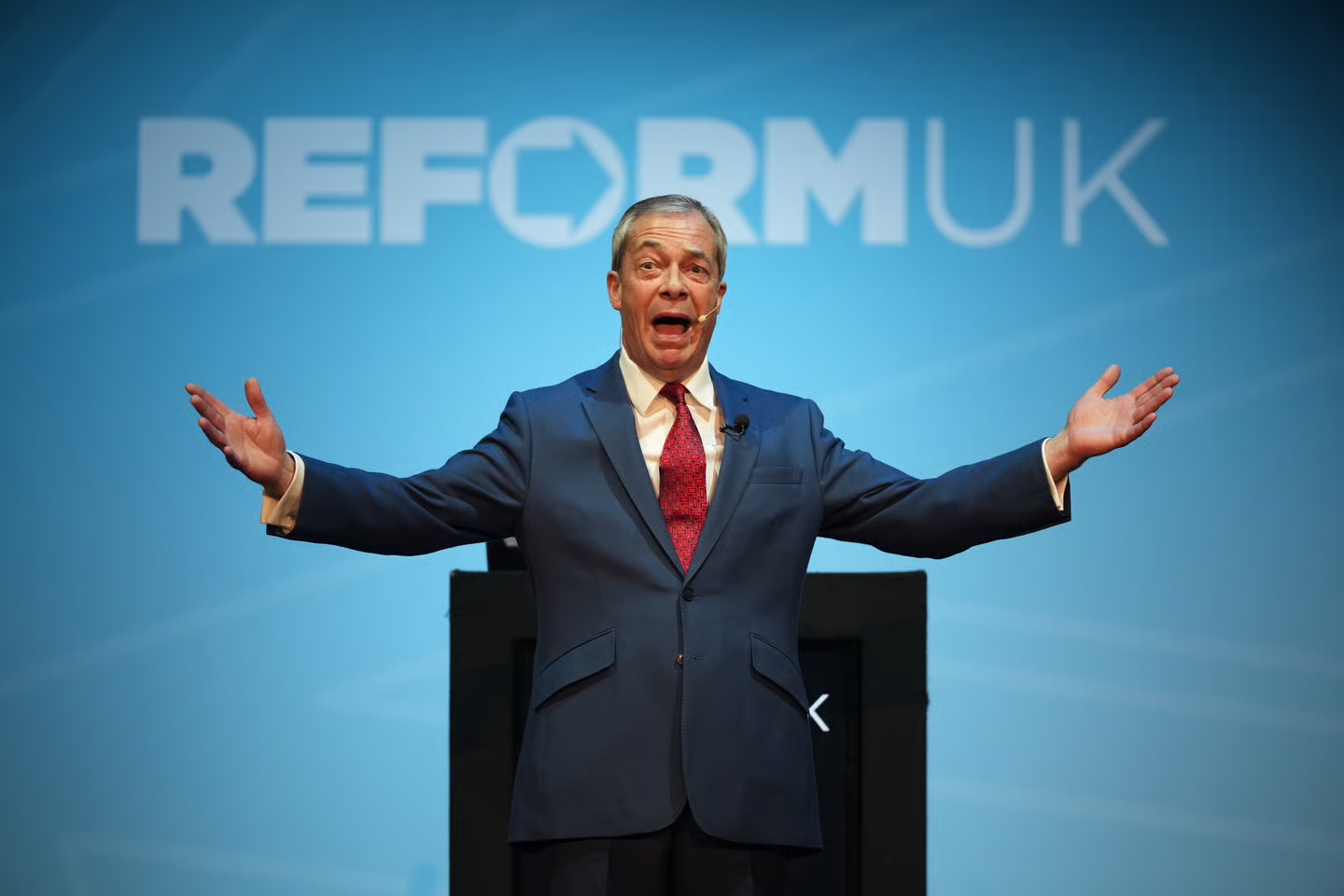London, UK – The Labour Party, once the undisputed voice of Britain’s working class, is in freefall. Less than a year after their general election victory in July 2024, Keir Starmer’s government has systematically alienated its traditional base, paving the way for the meteoric rise of Nigel Farage’s Reform UK. This isn’t just a political shift; it’s a seismic realignment, a working-class rebellion against a Labour establishment perceived as out-of-touch, deceitful, and more concerned with progressive dogma than the everyday struggles of ordinary Britons.

The numbers don’t lie. A YouGov poll in February 2025 delivered a brutal blow: Reform UK now leads Labour among C2DE voters (skilled manual, semi-skilled/unskilled workers, and non-working individuals) by a staggering 30% to 20%. Even the Conservatives, at 22%, outpoll Labour in this historically crucial demographic. This isn’t an anomaly. Ipsos’s June 2025 Political Monitor shows Reform UK hitting a record 34% vote share nationally, a decisive nine points ahead of Labour’s dismal 25% – the lowest support Ipsos has recorded for Labour since October 2019.
The most damning indictment comes from YouGov’s June 2025 MRP (Multi-level Regression and Post-stratification) model. It projects a hung parliament where Reform UK would emerge as the largest party with an astonishing 271 seats, while Labour plummets to a mere 178. The combined vote share of Labour and the Conservatives would collapse to just 41%, a stark indicator of the public’s profound disillusionment with the old guard.
The Great Working-Class Exodus
Analysis confirms the haemorrhage of Labour’s core support. A shocking 41% of voters who abandoned Labour since the 2024 election are working-class. This is a direct consequence of Labour’s abandonment of its roots, increasingly appealing to a “cosmopolitan elite” while neglecting the very people it was founded to represent. Reform UK now commands a substantial 18-point lead among social renters, a demographic once fiercely loyal to Labour, with 39% backing Farage’s party compared to Labour’s meagre 21%.
The Runcorn and Helsby by-election in May 2025 served as a potent symbol of this betrayal. Reform UK’s Sarah Pochin snatched the seat from Labour with a razor-thin majority of just six votes, overturning Labour’s colossal 14,696-vote majority from the 2024 general election. Labour MPs themselves were quick to point the finger at the government’s controversial cuts to winter fuel payments as a significant factor in their humiliating defeat. This wasn’t just a loss; it was a public repudiation.
Immigration Betrayal: Labour’s Open Borders Agenda
The primary driver of this working-class defection is Labour’s catastrophic failure on immigration. A staggering 62% of Labour-to-Reform switchers cited “immigration still being too high” as their top concern. Despite Labour’s rhetoric, small boat arrivals actually
increased by 34% in the year ending June 2025 under their watch, nearing record levels at approximately 42,000. Labour’s cancellation of the previous Rwanda scheme and their new Border Security, Asylum and Immigration Bill have done little to convince the public that they have control over Britain’s borders.
The public sentiment is clear: “migration is palpably too high”. While Labour maintains some visa restrictions inherited from the previous government, they have utterly failed to deliver the
perceived reduction in immigration that working-class communities demand. Reform UK, in stark contrast, offers a clear, uncompromising anti-immigration platform, advocating for policies like freezing “non-essential” immigration and stopping small boats. Farage’s direct appeal, emphasizing “British jobs for British workers,” resonates precisely because Labour is seen as failing to protect the interests of its own citizens.
Broken Promises and Economic Pain
Labour’s 2024 manifesto was a litany of pledges on economic stability and public services. Yet, 44% of Labour-to-Reform switchers cited “broken or not delivered promises” as a key reason for their defection. The most glaring example is Labour’s humiliating U-turn on welfare cuts, particularly changes to disability benefits and winter fuel payments. Despite initial plans to save billions, a massive internal rebellion saw 49 Labour MPs vote against the bill, forcing Starmer to dilute the measures and leaving a multi-billion-pound hole in public finances. This repeated U-turning and internal dissent have shattered trust in Labour’s competence and commitment to its traditional base.
Voters also feel the pinch of a cost of living that has “not improved enough” (22% of switchers) and public services like the NHS that “haven’t improved enough” (15% of switchers). Reform UK, with its straightforward promises of tax cuts – including raising the income tax threshold to £20,000 and cutting corporation tax to 15% – appeals directly to this deep-seated economic anxiety.
The “Woke” Disconnect and Starmer’s Weakness
Labour’s embrace of progressive social issues has further alienated its socially conservative working-class base. Policies perceived as “woke” or overly focused on abstract issues like net-zero targets are seen as out of touch with the core priorities of working-class communities, who prioritize jobs, security, and cultural identity. The growing support for Labour among professional and graduate demographics, coupled with its decline among the working class, highlights a deepening class and generational divide.
Compounding this is Keir Starmer’s abysmal leadership. His net satisfaction rating stands at a dismal -54, a staggering 88 points behind Tony Blair at the same point in his premiership. Half of Britons admit it is “not clear what Starmer stands for”. His leadership style is often perceived as “out of touch” and “patronizing,” with voters viewing him as an elitist lawyer rather than a relatable figure. This leadership vacuum directly benefits Nigel Farage, who is widely seen as a leader who “gets it” and offers a decisive alternative.
Reform’s Red Wall Revolution
Reform UK is not just gaining ground; it is actively conquering Labour’s traditional heartlands. YouGov’s June 2025 MRP projects Reform as the largest party in the East Midlands, North East, Wales, West Midlands, and Yorkshire and the Humber, even tying with Labour in the North West. In Wales, once an unassailable Labour bastion, Reform is projected to take a staggering 21 of the 32 seats, leaving Labour with just four. Local election results in May 2025 further confirm this trend, with Reform UK gaining over 150 council seats from Labour – more than four times the number gained by all other parties combined.
These gains are fueled by decades of economic decline, job losses in manufacturing, and a pervasive feeling that Labour has failed to revive these areas. Reform UK has skillfully captured this sentiment, positioning itself as the authentic anti-establishment voice, promising to “turn around” the economic, social, and cultural decline that many feel is engulfing the country.
The message is undeniable: Labour’s betrayal of the working class has created a void, and Reform UK is rapidly filling it. The Red Wall is no longer Labour’s; it is becoming the heartland of a new, resurgent right, ready to reclaim Britain’s future.










